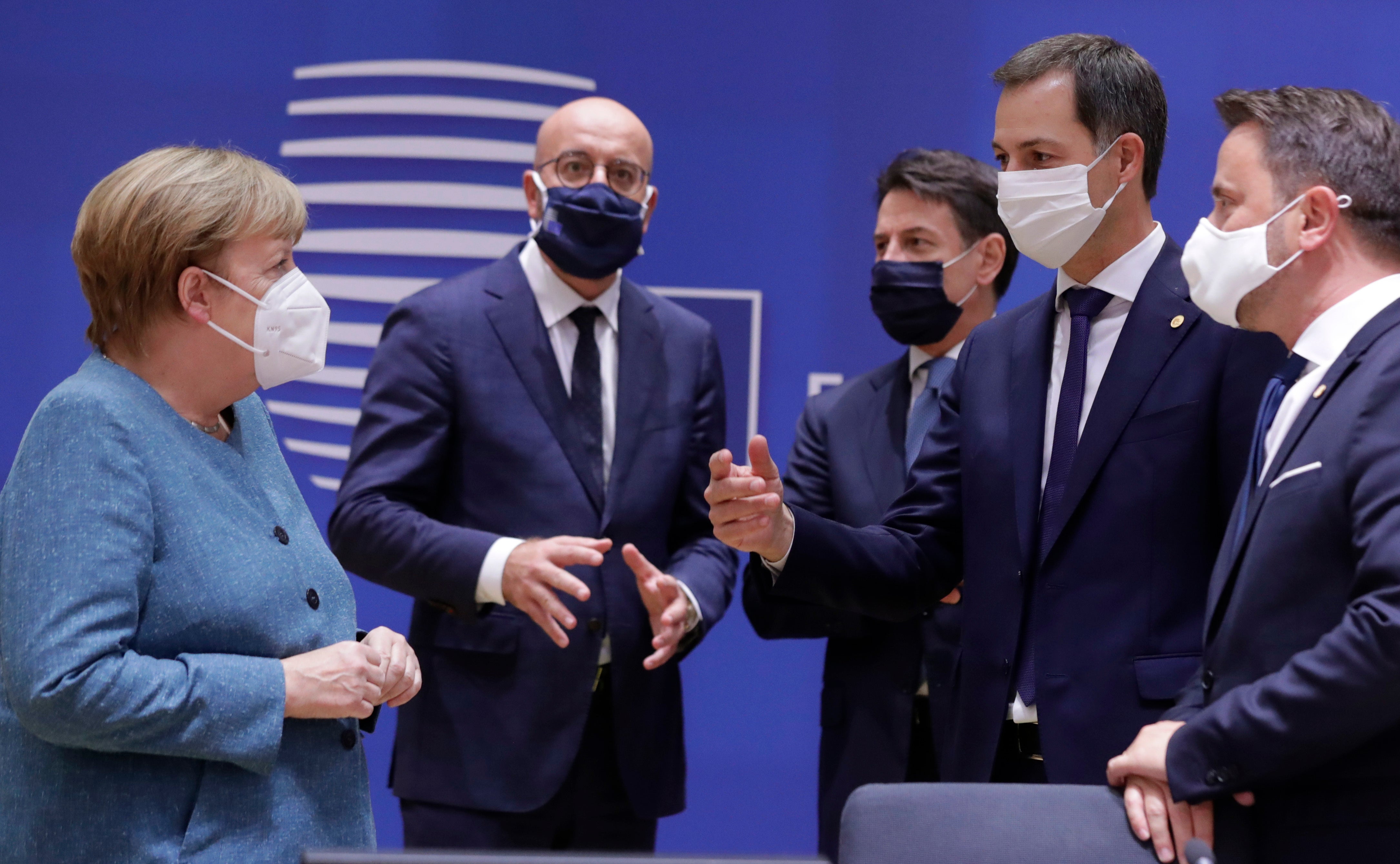De Croo sworn in as Belgian premier, rushes to EU summit
Belgium’s new 7-party government under Prime Minister Alexander De Croo has promised to do “whatever it takes” to overcome the coronavirus crisis, including spending enough to ensure the country’s rattled population overcomes the pandemic’s devastating economic impact

Your support helps us to tell the story
From reproductive rights to climate change to Big Tech, The Independent is on the ground when the story is developing. Whether it's investigating the financials of Elon Musk's pro-Trump PAC or producing our latest documentary, 'The A Word', which shines a light on the American women fighting for reproductive rights, we know how important it is to parse out the facts from the messaging.
At such a critical moment in US history, we need reporters on the ground. Your donation allows us to keep sending journalists to speak to both sides of the story.
The Independent is trusted by Americans across the entire political spectrum. And unlike many other quality news outlets, we choose not to lock Americans out of our reporting and analysis with paywalls. We believe quality journalism should be available to everyone, paid for by those who can afford it.
Your support makes all the difference.Belgium's new 7-party government under Prime Minister Alexander De Croo promised Thursday to do “whatever it takes" to overcome the coronavirus crisis, including spending enough to ensure the country s rattled population overcomes the pandemic's devastating economic impact.
The new government emerged after nearly a year and a half of complex negotiations among parties divided along linguistic as well as political lines.
Even though De Croo succeeded a woman — Sophie Wilmes — his team of 20 ministers and state secretaries is the first in Belgian history to have gender parity. It's also relatively young, with the age average at 44.
After taking the oath in front of Belgian King Philippe, De Croo went to the European Union's parliament in Brussels, preferred over the Belgian house because it allows for more social distancing, to address the national legislature and highlight the momentous task ahead.
“The depth of this crisis is unprecedented and the threat of a new wave of infections and uncertainty about a vaccine casts a shadow over the recovery. We will have to live with the virus for some time," he warned.
He promised more testing, investment in protective material and vaccine development. Belgium, a nation of 11.5 million, has been especially hard-hit by the virus and reached the 10,000 death mark on Wednesday. While spending to keep the economy afloat will be necessary, a key challenge will be to keep the budget deficit under control.
De Croo, a Dutch-speaking Liberal, is leading a 7-party team of Liberals, Socialists and Greens, divided into separate linguistic entities, and the Dutch-speaking Christian Democrats. Especially the Socialists and the free-market Liberals traditionally have opposing views on spending.
Still, the government program calls for new initiatives such as a higher minimum pension, more health sector spending and improved public services.
Despite his age, the 44-year-old De Croo already has almost a dozen years in Belgian politics at the highest level and was vice premier in the outgoing government.
His team is brimming with fresh faces. “It is the woman's century," he said, referring to the title of his 2018 book and highlighting his efforts for gender equality. “That is why this government has as many men as women. It is a historic step for our nation."
The cabinet includes Green Vice Premier Petra De Sutter, a professor specializing in gynecology and fertility who is the first transgender woman to hold so high a government position in Belgium. She had been part of the EU parliament since last year.
The government formation took close to 500 days since the May 26, 2019 elections.
Beyond the linguistic strife between 6.6 million Flemings and 5 million Francophones that is a given in Belgian politics, the 2019 elections saw major advances by the far right in northern Dutch-speaking Flanders, and by the far left in southern francophone Wallonia.
It made compromise, an essential element of Belgian politics, even harder.
It was with obvious relief that De Croo headed off immediately to his first European Union summit, a short walk from the parliament.
“Happy to announce that in Belgium we finally have a new government," he said in his arrival statement. Soon after he found himself in a diplomatic cocoon with the likes of German Chancellor Angela Merkel and French President Emmanuel Macron.